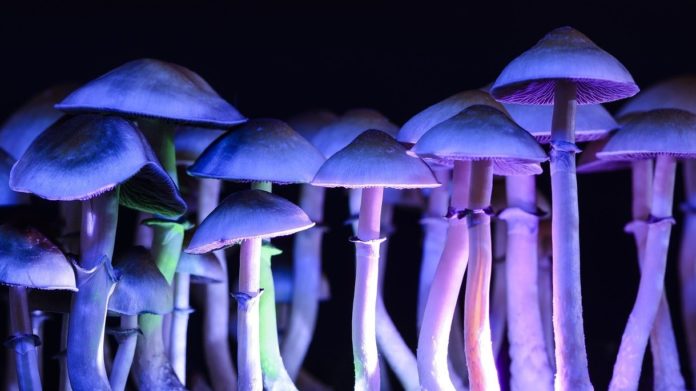Many mental health disorders are treatment-resistant, and the incidence and impact of these conditions are only getting worse. The current market for pharmacologic solutions to issues like depression, post-traumatic stress disorder (PTSD), and substance abuse is around $10 billion, yet upwards of 75% of patients are inadequately treated.
Similar to how cannabis for medical purposes has seen a turnaround in attitudes, the clinical community, regulators, and investors are becoming increasingly optimistic about powerful psychedelic drugs like LSD as a breakthrough solution. The heightened attention followed numerous groundbreaking studies with unprecedented results in treating mental health conundrums, and companies hoping to capitalize on these developments are now emerging.
Champignon Brands is rapidly becoming a leader in the emerging field of psychedelic medicine. They are involved in the development and commercialization of rapid onset treatments targeting mental health issues like depression, existential crises among the terminally ill, and PTSD, and substance abuse disorders like alcoholism and nicotine addiction.
Psychedelic substances include both natural and synthetic drugs like MDMA, psilocybin mushrooms, ketamine, and LSD, all of which have strong effects on conscious experience. The two “classic” hallucinogens, mushrooms and LSD, both act on 5-HT2A receptors in the brain, setting off a flood of changes with symptoms like euphoria, hallucinations, and extreme emotions.
Champignon is one of the first companies involved in commercializing medicinal psychedelics to go public, and the group is blazing a trail in this exciting and unconventional field. Their business strategy involves operating numerous ketamine treatment clinics in the US and Canada that double as research and development centres for an array of therapeutic products. The plan is to further psychedelic therapies through clinical trials and develop a competitive intellectual property portfolio and drug development platform.
“While the topic of medical psychedelics has recently gained worldwide momentum, I am exceptionally pleased with the strategic approach our team has taken in establishing a differentiated platform with operating treatment clinics in the US and Canada that also facilitate research and development of a wide range of therapeutic and medical applications,” commented Founder and CEO Roger McIntyre, a widely recognized expert in the study and treatment of mood disorders, to Proactive Investors.
A brief history of psychedelics in clinical research
Psychedelic substances have experienced something of a renaissance in recent years, but they were derided for decades by governments as dangerous mind-altering drugs. Now, they’re rapidly gaining favour among experts and researchers in leading institutions owing to their “game-changing” results with treatment-resistant mental health issues.
Johns Hopkins University, a top US medical research institution, launched a dedicated centre for psychedelic studies in late 2019 with the idea of studying these substances under strict scientific rigour. This is particularly important for psychedelic research since researchers need to assuage fears and criticism about the field’s uncomfortably close relationship with “woo” and over-reliance on subjective anecdotal reports.
This isn’t the first time psychedelics have gone under clinical evaluation. Back in the ’50s and ’60s, they were studied for their effects on sufferers of alcoholism among other issues, and promising results emerged. This was until recreational use and abuse among countercultural groups led to them being strictly outlawed, and research was frozen for decades.
At the turn of the millennium, things started to change as clinicians gained regulatory approval and were allowed to conduct experiments with volunteers in highly controlled settings to monitor for safety. The Johns Hopkins center now has a large and growing body of work exploring the substances in many contexts, including a landmark 2006 study that began turning heads and attracting favourable media coverage.
A 2016 paper reporting on a randomized double-blind trial with terminally ill cancer patients suffering from depression and anxiety showed that 80% of participants remained less clinically depressed six months down the line. Another study reported a 67% cessation rate with smokers who underwent psychedelic therapy, a huge leap over the average success rate of 35% with traditional smoking cessation therapies. Similarly, MDMA-assisted psychotherapy for PTSD has shown remarkable results for this notoriously difficult to treat disease, with one study showing a remarkable 76% success rate 12 months after therapy.
Internationally, leading medical research institutions like King’s College London and the Karolinska Institute in Sweden are also pioneering research in the area and have shown similarly incredible results.
Fears surrounding the potential for abuse with psychedelics are not unfounded, however. While addiction is not generally associated with psychedelics, those with a history of mental illness are predisposed towards a heightened risk for developing conditions like persistent psychosis — even after the trip has ended.
Even with relatively healthy individuals, taking these substances in the wrong frame of mind or environment (known as “set and setting”) can result in a terrifying hallucinogenic experience. There’s also the broader risk of heavy intoxication leading to accidents due to impaired judgement.
Contrary to other psychedelics like LSD and mushrooms, ketamine does hold potential for addiction, and abusing the drug in high volumes over extended periods can have serious health consequences. These concerns are why legalization by Health Canada was strictly granted for medical and therapeutic purposes, not recreational.
AltMed acquisition and research at Champignon
There are currently three Phase I clinical trials and three in the preclinical stage at Champignon, along with seven patents for its ketamine/psilocybin delivery platforms and formulations.
In 2020, Champignon acquired the Canadian ketamine clinic operator, AltMed, a group with a range of assets that will expedite the former’s rollout of new clinics across North America. This includes an established commercial relationship with InterVivo Solutions, Canada’s largest neuroscience-focused preclinical contract research organization. These bodies are converging to speed up Phase I testing and the drug development of psychedelic molecules and delivery systems.
Through the acquisition, Champignon now has a 75% stake in the Canadian Rapid Treatment Centre of Excellence, a ketamine therapy clinic in Mississauga, Ont., and the only clinic in the country approved by Health Canada to perform psilocybin doses.
In the second half of 2020, AltMed began R&D campaigns and clinical trials led and administered by leading doctors, clinicians, and researchers targeting several conditions like addiction, PTSD, dementia, anxiety, and treatment-resistant depression.
“Together with Champignon’s existing novel ketamine delivery platforms, associated patents/IP and now advanced clinical infrastructure, we will look to deliver approved, point-of-care psychedelic treatments in clinics throughout Canada and the United States,” said Pat McCutcheon, director of AltMed, to Globe Newswire.
“Led by our accomplished operational team… we will be the global leader with regard to the application of rapid onset treatments and will continue to be a first-in-class… centre that champions R&D, clinical research, knowledge translation, vocational rehabilitation and psychotherapeutics, offering patient populations a wholesome and comprehensive treatment ecosystem.”





































